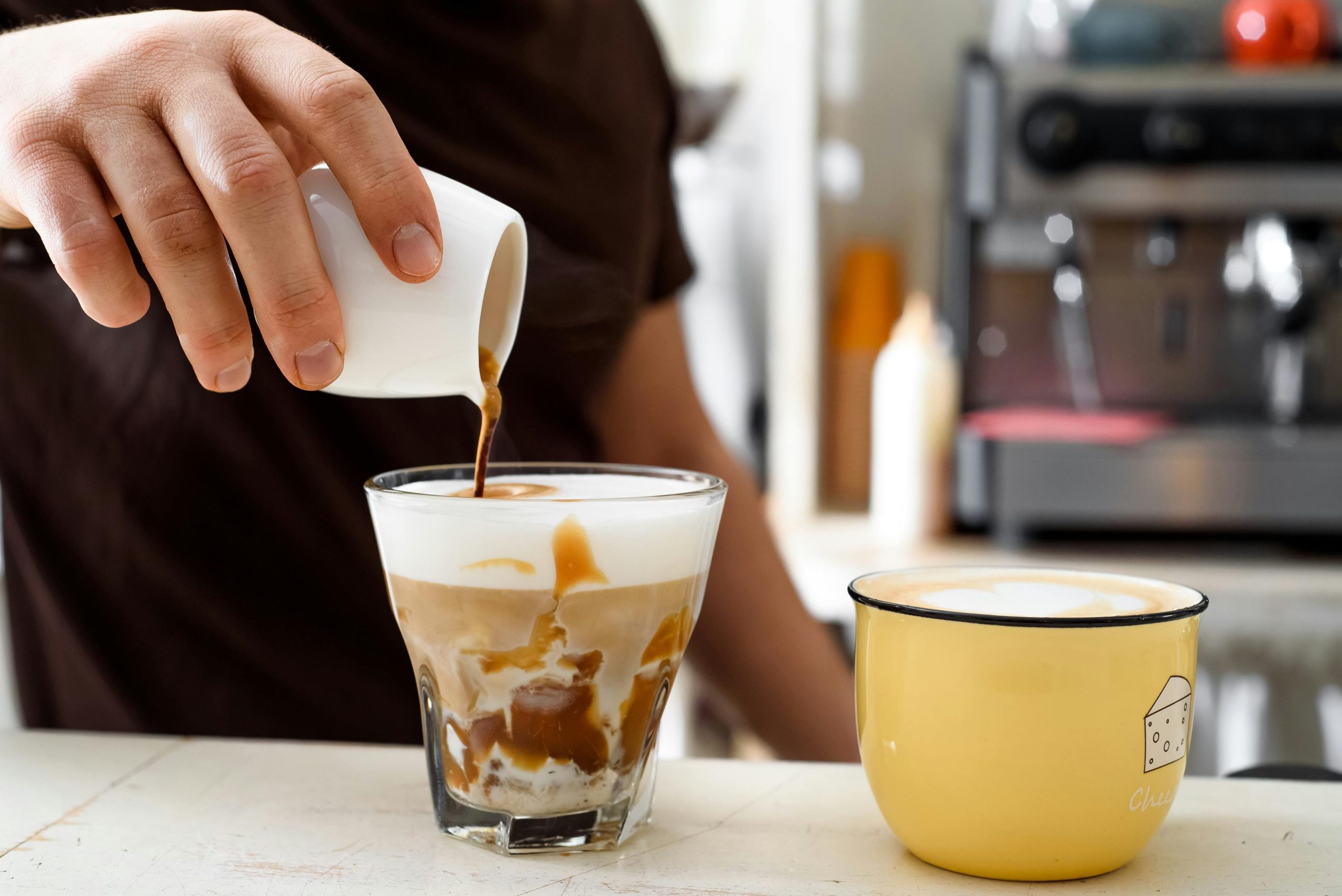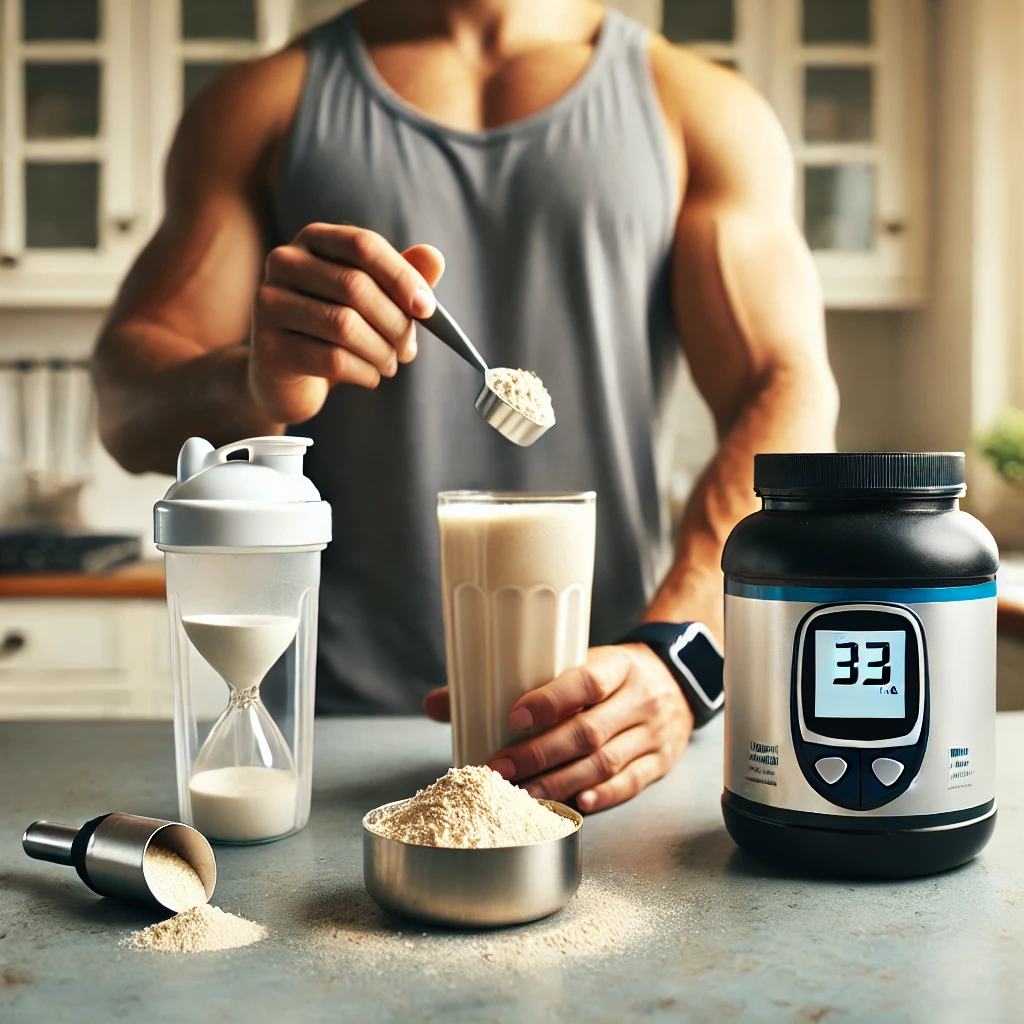
How and Why Coffee Raises Blood Sugar
How and Why Coffee Raises Blood Sugar: Unveiling the Connection
Table of Contents
Introduction
Coffee is one of the most popular beverages worldwide, valued for its energizing effects and rich aroma. However, for individuals with diabetes or insulin resistance, it’s important to understand how coffee can impact blood sugar levels. While coffee itself is low in calories and carbohydrates, its effects on blood sugar are linked to its active compounds, particularly caffeine, and their influence on the body’s hormonal and metabolic processes (Smith, 2020).
At the Diabetes Reversal Clinic, under the expert guidance of Dr. Soumya Hullanavar, we help patients make informed dietary choices, including understanding the role of coffee in managing blood sugar levels (Sharma, 2018).

Coffee & Blood Sugar
How Coffee Impacts Blood Sugar Levels
1. Caffeine’s Role in Glucose Metabolism
- Increased Hormonal Activity:
Caffeine stimulates the release of hormones like adrenaline and cortisol, which are part of the body’s “fight-or-flight” response. These hormones can cause the liver to release more glucose into the bloodstream, leading to elevated blood sugar levels (Johnson, 2019). - Reduced Insulin Sensitivity:
Caffeine can temporarily make cells less responsive to insulin, a condition known as insulin resistance. This means glucose stays in the bloodstream longer, increasing blood sugar levels (Miller & Thompson, 2020).
2. Individual Variability
- Genetic Factors:
Some people metabolize caffeine quickly and experience minimal effects on blood sugar, while others metabolize it slowly, leading to prolonged elevations (Kapoor & Malik, 2019). - Existing Health Conditions:
Individuals with prediabetes, Type 2 diabetes, or metabolic syndrome are more likely to experience blood sugar spikes after consuming coffee (American Diabetes Association, 2022).
3. Additives in Coffee
- Sugar and Creamers:
Adding sugar, flavored syrups, or high-fat creamers can significantly increase the glycemic impact of coffee by adding calories and simple sugars, leading to increased blood sugar levels (Smith, 2020).
Why Coffee Raises Blood Sugar
1. Stimulation of the Liver
Caffeine triggers the liver to release stored glucose (glycogen) into the bloodstream, raising blood sugar levels (Johnson, 2019).
2. Stress Hormone Release
Caffeine causes the adrenal glands to release stress hormones like cortisol, which promote glucose production as part of the body’s energy mobilization process (Miller & Thompson, 2020).
3. Disruption of Insulin Efficiency
By impairing insulin sensitivity, caffeine prevents glucose from efficiently entering cells, leaving more sugar in the blood (Kapoor & Malik, 2019).
Factors That Influence Coffee’s Effect on Blood Sugar
| Factor | Impact on Blood Sugar |
|---|---|
| Caffeine Content | Higher caffeine levels lead to greater glucose release. |
| Preparation Method | Espresso and dark roasts may have varying caffeine levels. |
| Additives | Sugar, cream, and flavored syrups can amplify blood sugar spikes. |
| Timing | Consuming coffee on an empty stomach can intensify its effects on glucose. |
| Individual Tolerance | People with higher caffeine sensitivity may experience stronger effects. |
Ayurvedic Perspective on Coffee and Blood Sugar
In Ayurveda, coffee is classified as a stimulant that aggravates Vata and Pitta doshas (Sharma, 2018). Its stimulating nature can increase restlessness and heat in the body, disrupting digestion (Agni) and metabolism. Ayurveda advises moderation in coffee consumption, particularly for individuals with diabetes or conditions involving Pitta imbalance.
How to Minimize Coffee’s Impact on Blood Sugar
1. Monitor Your Response
- Regularly check blood sugar levels before and after drinking coffee to understand its impact on your body (American Diabetes Association, 2022).
2. Opt for Black Coffee
- Avoid sugary syrups, creamers, and processed additives to minimize the glycemic impact (Smith, 2020).
3. Pair Coffee with Food
- Consume coffee with a balanced meal that includes protein and healthy fats to slow glucose absorption (Kapoor & Malik, 2019).
4. Limit Quantity
- Reduce caffeine intake to one or two cups per day to minimize its effect on insulin sensitivity (Miller & Thompson, 2020).
5. Choose Decaffeinated Coffee
- Decaf coffee contains less caffeine and is less likely to impact blood sugar significantly (Johnson, 2019).
Success Stories at the Diabetes Reversal Clinic
Case 1: Managing Coffee Consumption
- Patient Profile: A 35-year-old male with Type 2 diabetes experiencing post-coffee blood sugar spikes.
- Intervention: Transitioned to decaf coffee and paired it with protein-rich meals.
- Outcome: Stabilized post-coffee blood sugar levels within two weeks (EliteAyurveda, 2023).
Case 2: Reducing Insulin Resistance
- Patient Profile: A 40-year-old female with insulin resistance and a habit of consuming sugary lattes.
- Intervention: Shifted to black coffee with cinnamon and reduced overall caffeine intake.
- Outcome: Improved blood sugar control and reduced insulin resistance within three months (EliteAyurveda, 2023).
From the Doctor’s Desk
Dr. Soumya Hullanavar shares:
“Coffee can be a part of your diet if consumed mindfully, but it’s crucial to understand its impact on blood sugar. At the Diabetes Reversal Clinic, we guide patients on making informed choices to optimize their health while managing diabetes effectively.” (Hullanavar, 2023)
Why Choose the Diabetes Reversal Clinic?
- Personalized Guidance: Tailored dietary recommendations based on individual glucose responses.
- Holistic Approach: Integrates modern insights with Ayurvedic principles for optimal health.
- Expert Leadership: Led by Dr. Soumya Hullanavar, a specialist in diabetes management and endocrinology.
- Sustainable Results: Focus on long-term health and balanced blood sugar control (EliteAyurveda, 2023).
Conclusion
While coffee offers certain health benefits, it can impact blood sugar levels, especially for individuals with diabetes. Understanding how coffee affects your body and making mindful adjustments can help you enjoy it without compromising your health. At the Diabetes Reversal Clinic, we help you navigate these choices with personalized care and holistic solutions.
📞 Contact us today: +91 8884722267
🌐 Visit: Diabetes Reversal Clinic
Related-
Know more about Ayurveda Diabetes Reversal Treatments.
GET IN TOUCH
Schedule a Visit
References
Click here for References
1.Cano-Marquina A., Tarínb J.J., Cano A. The impact of coffee on health. Maturitas. 2013;75:7–21. doi: 10.1016/j.maturitas.2013.02.002. [DOI] [PubMed] [Google Scholar]
2.Dórea J.G., da Costa T.H. Is coffee a functional food? Br J Nutr. 2005;93:773–782. doi: 10.1079/bjn20051370. [DOI] [PubMed] [Google Scholar]
3.Huxley R., Lee C.M., Barzi F. Coffee, decaffeinated coffee, and tea consumption in relation to incident type 2 diabetes mellitus: a systematic review with meta-analysis. Arch Intern Med. 2009;169:2053–2063. doi: 10.1001/archinternmed.2009.439. [DOI] [PubMed] [Google Scholar]
4.Muley A., Muley P., Shah M. Coffee to reduce risk of type 2 diabetes?: a systematic review. Curr Diabetes Rev. 2012;8:162–168. doi: 10.2174/157339912800564016. [DOI] [PubMed] [Google Scholar]
5.Bhupathiraju S.N., Pan A., Manson J.E., Willett W.C., van Dam R.M., Hu F.B. Changes in coffee intake and subsequent risk of type 2 diabetes: three large cohorts of US men and women. Diabetologia. 2014;57:1346–1354. doi: 10.1007/s00125-014-3235-7. [DOI] [PMC free article] [PubMed] [Google Scholar]
6.Ding M., Bhupathiraju S.N., Chen M., van Dam R.M., Hu F.B. Caffeinated and decaffeinated coffee consumption and risk of type 2 diabetes: a systematic review and a dose-response meta-analysis. Diabetes Care. 2014;37:569–586. doi: 10.2337/dc13-1203. [DOI] [PMC free article] [PubMed] [Google Scholar]
7.Jiang X., Zhang D., Jiang W. Coffee and caffeine intake and incidence of type 2 diabetes mellitus: a meta-analysis of prospective studies. Eur J Nutr. 2014;53:25–38. doi: 10.1007/s00394-013-0603-x. [DOI] [PubMed] [Google Scholar]
8.Yarmolinsky J., Mueller N.T., Duncan B.B., Bisi Molina Mdel C., Goulart A.C., Schmidt M.I. Coffee consumption, newly diagnosed diabetes, and other alterations in glucose homeostasis: a cross-sectional analysis of the longitudinal study of adult health (ELSA-Brasil) PLoS One. 2015;10 doi: 10.1371/journal.pone.0126469. e0126469. [DOI] [PMC free article] [PubMed] [Google Scholar]
9.Santos R.M., Lima D.R. Coffee consumption, obesity and type 2 diabetes: a mini-review. Eur J Nutr. 2016;55:1345–1358. doi: 10.1007/s00394-016-1206-0. [DOI] [PubMed] [Google Scholar]
10.Tunnicliffe J.M., Shearer J. Coffee, glucose homeostasis, and insulin resistance: physiological mechanisms and mediators. Appl Physiol Nutr Metabol. 2008;33:1290–1300. doi: 10.1139/H08-123. [DOI] [PubMed] [Google Scholar]
11.Pimentel G.D., Zemdegs J.C., Theodoro J.A., Mota J.F. Does long-term coffee intake reduce type 2 diabetes mellitus risk? Diabetol Metab Syndrome. 2009;1:6. doi: 10.1186/1758-5996-1-6. [DOI] [PMC free article] [PubMed] [Google Scholar]
12.Natella F., Scaccini C. Role of coffee in modulation of diabetes risk. Nutr Rev. 2012;70:207–217. doi: 10.1111/j.1753-4887.2012.00470.x. [DOI] [PubMed] [Google Scholar]
13.Moher D., Liberati A., Tetzlaff J., Altman D.G., PRISMA Group Preferred reporting items for systematic reviews and meta-analyses: the PRISMA statement. Ann Intern Med. 2009;151:264–269. doi: 10.7326/0003-4819-151-4-200908180-00135. [DOI] [PubMed] [Google Scholar]
14.Jadad A.R., Moore R.A., Carroll D. Assessing the quality of reports of randomized clinical trials: is blinding necessary? Contr Clin Trials. 1996;17:1–12. doi: 10.1016/0197-2456(95)00134-4. [DOI] [PubMed] [Google Scholar]
15.Moisey L.L., Kacker S., Bickerton A.C., Robinson L.E., Graham T.E. Caffeinated coffee consumption impairs blood glucose homeostasis in response to high and low glycemic index meals in healthy men. Am J Clin Nutr. 2008;87:1254–1261. doi: 10.1093/ajcn/87.5.1254. [DOI] [PubMed] [Google Scholar]
16.van Dijk A.E., Olthof M.R., Meeuse J.C., Seebus E., Heine R.J., van Dam R.M. Acute effects of decaffeinated coffee and the major coffee components chlorogenic acid and trigonelline on glucose tolerance. Diabetes Care. 2009;32:1023–1025. doi: 10.2337/dc09-0207. [DOI] [PMC free article] [PubMed] [Google Scholar]
17.Krebs J.D., Parry-Strong A., Weatherall M., Carroll R.W., Downie M.A. cross–over study of the acute effects of espresso coffee on glucose tolerance and insulin sensitivity in people with type 2 diabetes mellitus. Metabolism. 2012;61:1231–1237. doi: 10.1016/j.metabol.2012.01.021. [DOI] [PubMed] [Google Scholar]
18.Robertson T.M., Clifford M.N., Penson S., Chope G., Robertson M.D. A single serving of caffeinated coffee impairs postprandial glucose metabolism in overweight men. Br J Nutr. 2015;114:1218–1225. doi: 10.1017/S0007114515002640. [DOI] [PubMed] [Google Scholar]
19.Gavrieli A., Fragopoulou E., Mantzoros C.S., Yannakoulia M. Gender and body mass index modify the effect of increasing amounts of caffeinated coffee on postprandial glucose and insulin concentrations: a randomized, controlled, clinical trial. Metabolism. 2013;62:1099–1106. doi: 10.1016/j.metabol.2013.02.003. [DOI] [PubMed] [Google Scholar]
20.Thom E. The effect of chlorogenic acid enriched coffee on glucose absorption in healthy volunteers and its effect on body mass when used long-term in overweight and obese people. J Int Med Res. 2007;35:900–908. doi: 10.1177/147323000703500620. [DOI] [PubMed] [Google Scholar]
21.Moisey L.L., Robinson L.E., Graham T.E. Consumption of caffeinated coffee and a high carbohydrate meal affects postprandial metabolism of a subsequent oral glucose tolerance test in young, healthy males. Br J Nutr. 2010;103:833–841. doi: 10.1017/S0007114509992406. [DOI] [PubMed] [Google Scholar]
22.Gavrieli A., Yannakoulia M., Fragopoulou E. Caffeinated coffee does not acutely affect energy intake, appetite, or inflammation but prevents serum cortisol concentrations from falling in healthy men. J Nutr. 2011;141:703–707. doi: 10.3945/jn.110.137323. [DOI] [PubMed] [Google Scholar]
23.Rakvaag E., Dragsted L.O. Acute effects of light and dark roasted coffee on glucose tolerance: a randomized, controlled crossover trial in healthy volunteers. Eur J Nutr. 2016;55:2221–2230. doi: 10.1007/s00394-015-1032-9. [DOI] [PubMed] [Google Scholar]
24.Hatonen K.A., Virtamo J., Eriksson J.G. Coffee does not modify postprandial glycaemic and insulinaemic responses induced by carbohydrates. Eur J Nutr. 2012;51:801–806. doi: 10.1007/s00394-011-0258-4. [DOI] [PubMed] [Google Scholar]
25.Johnston K.L., Clifford M.N., Morgan L.M. Coffee acutely modifies gastrointestinal hormone secretion and glucose tolerance in humans: glycemic effects of chlorogenic acid and caffeine. Am J Clin Nutr. 2003;78:728–733. doi: 10.1093/ajcn/78.4.728. [DOI] [PubMed] [Google Scholar]
26.Battram D.S., Arthur R., Weekes A., Graham T.E. The glucose intolerance induced by caffeinated coffee ingestion is less pronounced than that due to alkaloid caffeine in men. J Nutr. 2006;136:1276–1280. doi: 10.1093/jn/136.5.1276. [DOI] [PubMed] [Google Scholar]
27.Louie J.C., Atkinson F., Petocz P., Brand-Miller J.C. Delayed effects of coffee, tea and sucrose on postprandial glycemia in lean, young, healthy adults. Asia Pac J Clin Nutr. 2008;17:657–662. [PubMed] [Google Scholar]
28.Aldughpassi A., Wolever T.M. Effect of coffee and tea on the glycaemic index of foods: no effect on mean but reduced variability. Br J Nutr. 2009;101:1282–1285. doi: 10.1017/s0007114508079610. [DOI] [PubMed] [Google Scholar]
29.Greenberg J.A., Owen D.R., Geliebter A. Decaffeinated coffee and glucose metabolism in young men. Diabetes Care. 2010;33:278–280. doi: 10.2337/dc09-1539. [DOI] [PMC free article] [PubMed] [Google Scholar]





